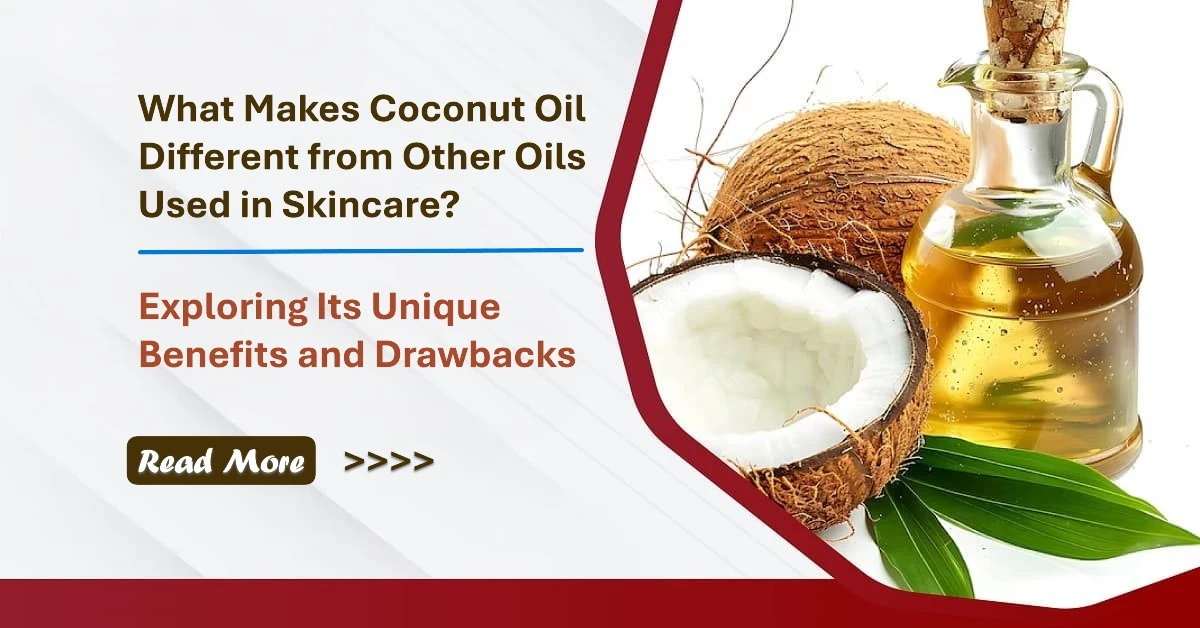What Makes Coconut Oil Different from Other Oils Used in Skincare? Exploring Its Unique Benefits and Drawbacks
What Makes Coconut Oil Different from Other Oils Used in Skincare? Exploring Its Unique Benefits and Drawbacks
Coconut oil has long been a staple in natural skincare routines, praised for its rich texture, tropical scent, and wide-ranging benefits. But how does it truly compare to other plant-based oils commonly used in skincare, like jojoba, argan, or rosehip oil? The answer lies in its unique composition and properties, which make it stand out—for better or worse—depending on your skin type and concerns.
Unique Composition of Coconut Oil
Coconut oil is primarily composed of saturated fatty acids, with lauric acid being the most dominant. This gives it a thick, creamy texture and makes it solid at room temperature—unlike many other oils that remain liquid. Lauric acid is known for its antibacterial and antifungal properties, which makes coconut oil particularly useful for addressing minor skin infections or acne caused by certain bacteria.
In contrast, oils like jojoba oil closely resemble the skin's natural sebum and contain mostly monounsaturated fats, making them lighter and more suitable for oily or acne-prone skin. Argan oil, rich in vitamin E and linoleic acid, is better suited for moisturizing and calming inflamed or sensitive skin. Coconut oil’s saturated fat content makes it deeply moisturizing but also potentially comedogenic (pore-clogging), especially for those with oily or acne-prone skin.
Benefits of Coconut Oil in Skincare
-
Deep Moisturization: Coconut oil is an occlusive, meaning it forms a protective barrier over the skin to lock in moisture. It's especially beneficial for dry, cracked, or flaky skin.
-
Antimicrobial Properties: The lauric acid in coconut oil has been shown to reduce the presence of acne-causing bacteria like Propionibacterium acnes.
-
Soothing Effect: Its anti-inflammatory properties can help calm irritated or sunburned skin.
-
Rich in Antioxidants: Coconut oil contains vitamin E and polyphenols, which may help protect the skin from environmental damage.
Drawbacks Compared to Other Oils
Despite its many benefits, coconut oil is not ideal for everyone:
-
Clogged Pores: Coconut oil is rated high on the comedogenic scale (4 out of 5), meaning it can clog pores and lead to breakouts in acne-prone individuals.
-
Not Easily Absorbed: Due to its thick texture and saturated fat content, it may sit on top of the skin rather than absorb deeply, unlike lighter oils like rosehip or squalane.
-
Allergic Reactions: While rare, some individuals may experience irritation or allergic reactions when using coconut oil.
Conclusion
What sets coconut oil apart from other oils used in skincare is its unique balance of saturated fats, antibacterial properties, and deep moisturizing capabilities. While it works exceptionally well for dry, rough, or inflamed skin, it may not be the best choice for oily or acne-prone types. Like any skincare ingredient, coconut oil is most effective when used appropriately for your specific skin needs and in combination with a well-rounded skincare routine.

Related Blog
What Causes Oily Skin and Can It Be Managed Naturally? Exploring Root Causes and Gentle Solutions
Aug 2, 2025 by Admin
General
What Are the Signs That You Have Sensitive Skin? Key Symptoms to Help You Identify This Delicate Skin Type
Aug 1, 2025 by Admin
General